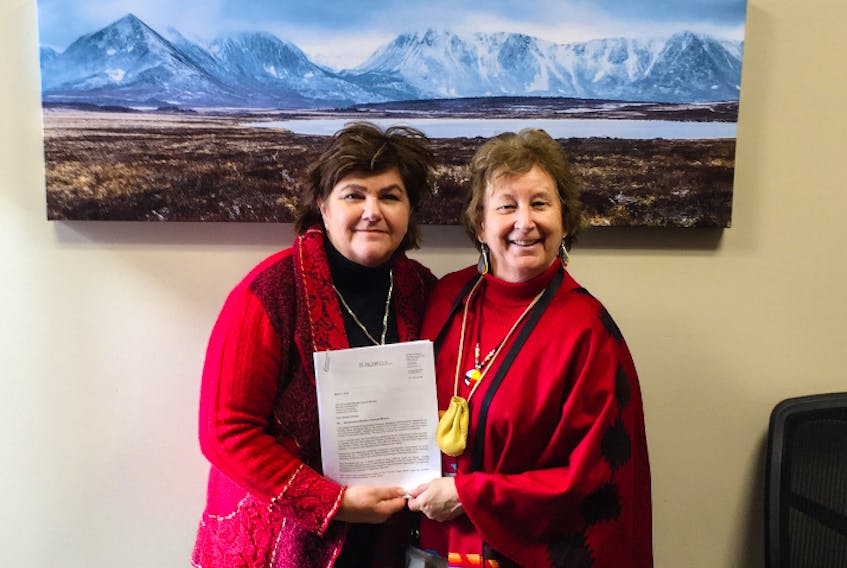PORT SAUNDERS, NL – Chief Mildred Lavers says the Mekap'sk Mi'kmaq Band is “being forgotten on the Northern Peninsula.”
According to a news release from the band on Tuesday, March 6, a formal assertion of Aboriginal title over the region was issued yesterday.
"We need to be consulted,” Lavers said. “We need a modern-day treaty to clarify our jurisdiction and create a framework for our people to take part in the management of our own land.”
The Mekap'sk Mi'kmaq Band, also called the Northern Peninsula Mi’kmaq or “NorPen,” is a First Nation band that is recognized and protected under the Constitution Act.
It represents some 1,200 Mi’kmaq people who collectively hold Aboriginal title over the Northern Peninsula.
According to the news release, the band has provided government with “substantial archival and expert evidence showing Mi'kmaq occupation of the area well prior to the earliest possible date for legal British sovereignty.”
The release states the Northern Peninsula is a part of the “French Treaty Shore,” which was created by international treaties between Britain and France in 1713, 1763, 1783 and 1814.
The band claims, because Britain did not acquire unconditional and effective sovereignty over the area in international law until 1904, and did not exercise governmental control until into the 1880s, the region's history gives it a unique constitutional status.
“This history, very different from that of other parts of Newfoundland where British sovereignty arose in the 1700s, means the Mekap'sk have a particularly strong claim over this land and these waters,” the release states.









